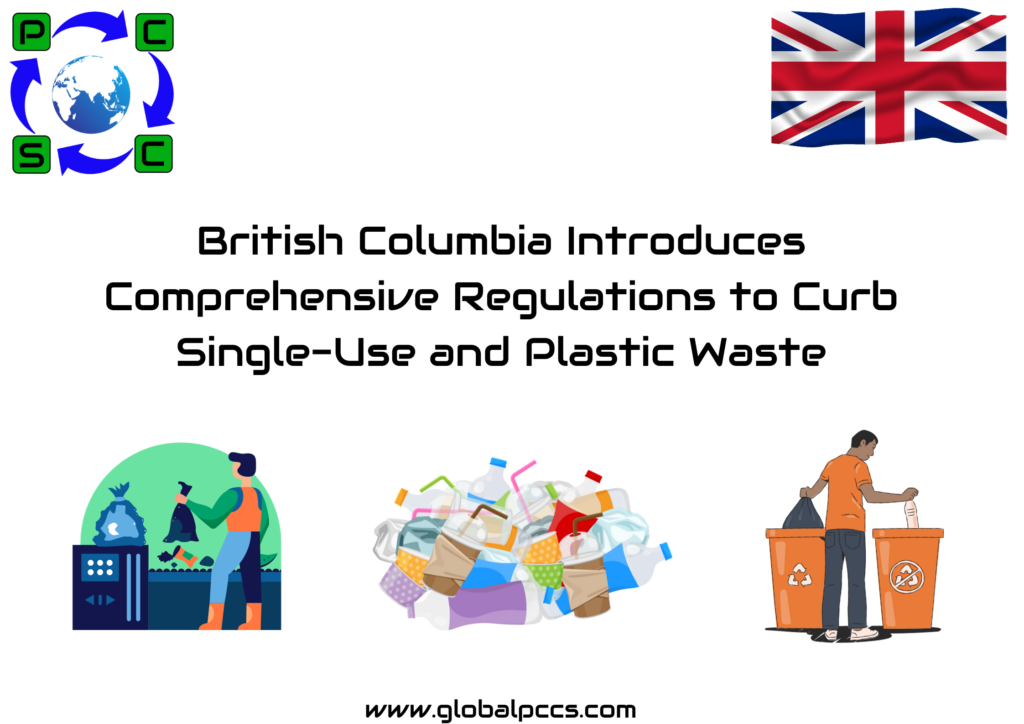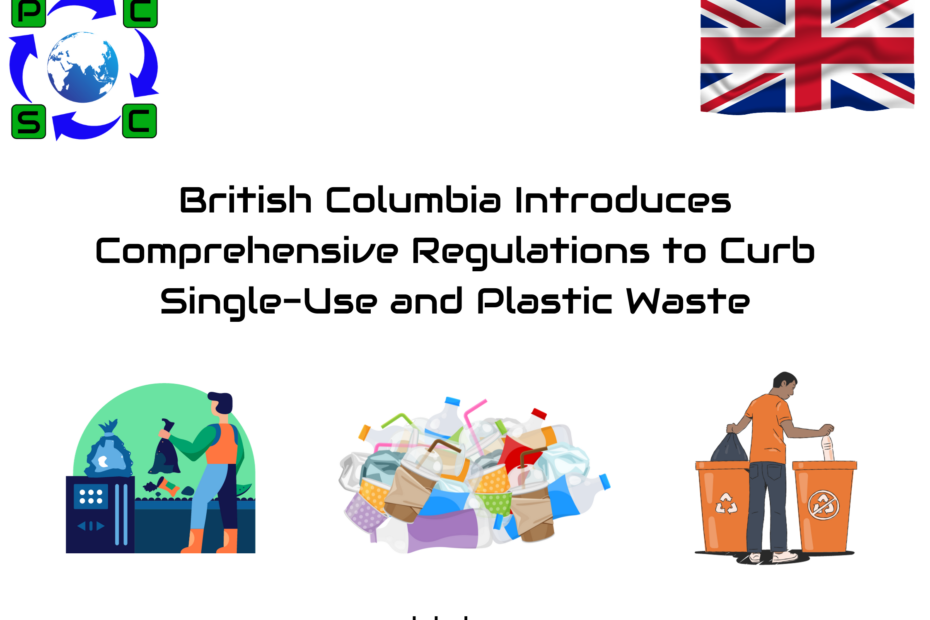
By outlawing specific products and encouraging sustainable alternatives, British Columbia’s Single-Use and Plastic Waste Prevention Regulation seeks to lessen the environmental effect of single-use and plastic items.
The Regulation imposes a number of restrictions and regulations, which become operative six months after publication, such as:
1. Prohibiting the use of single-use plastic shopping bags, regardless of whether they are made from compostable, biodegradable plastics, or other materials.
2. Restricting food service providers from packaging prepared food and beverages for sale in B.C. using items made from compostable plastics, biodegradable plastics, polystyrene foam, PVC (polyvinyl chloride), and PVDC (polyvinylidene chloride).
3. Banning the sale and distribution of foodservice packaging made from biodegradable plastics, polystyrene foam, PVC, and PVDC for packaging food and beverages.
4. Prohibiting single-use plastic utensils, including compostable and biodegradable options.
5. Eliminating pre-packaged bundles of foodservice accessories, such as napkins and single-serve condiments.
6. Banning all packaging and single-use products made from oxo-degradable plastics.

encourage the adoption of alternatives.


Regulation is published. On July 1, 2030, which is seven years after the Regulation’s publication, the sale and distribution of polystyrene foam trays used for these purposes will
be prohibited.

necessary items, and phasing out unnecessary products. It also aligns with British Columbia’s commitment to the pollution prevention hierarchy.
and wildlife.
Conclusion
British Columbia’s Single-Use and Plastic Waste Prevention Regulation bans or restricts a range of single-use and plastic items, such as shopping bags, foodservice packaging, and
utensils. It also requires businesses to offer reusable alternatives and charge a fee for paper shopping bags. The regulation is expected to reduce plastic pollution and promote a circular economy.
For more information on the impact please book a free consultation by filling the form or writing to us at manjunath.c@globalpccs.com








 Authorised IMDS & CDX Training & Consulting partner for
Authorised IMDS & CDX Training & Consulting partner for






